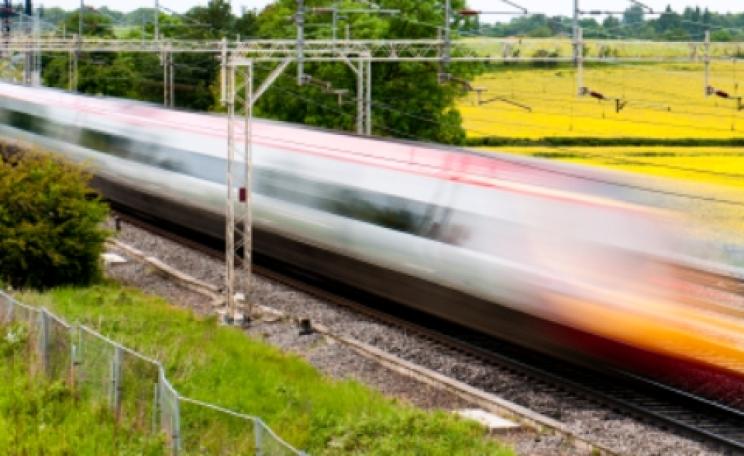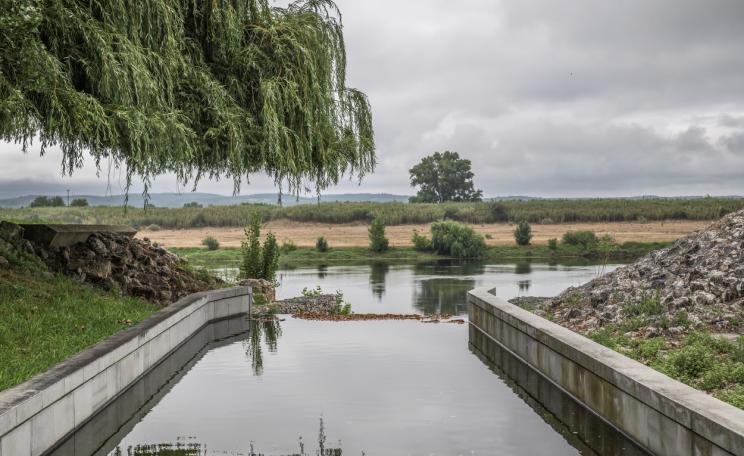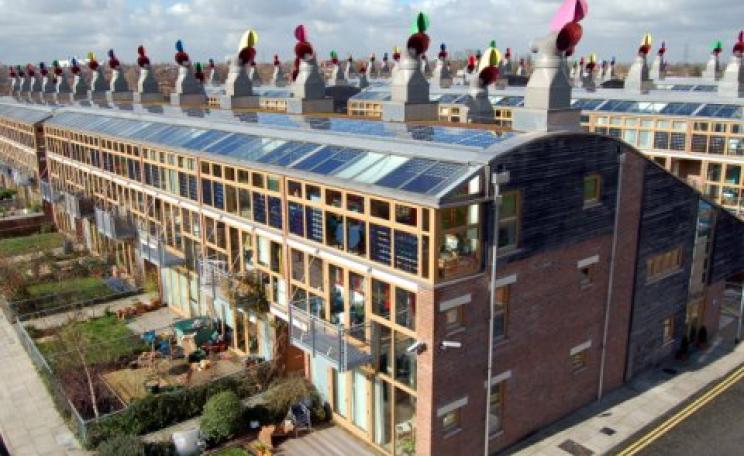When Secretary of State for Transport Justine Greening announced approval of plans for a high speed rail network, known as High Speed 2, public opinion was immediately split. HS2, scheduled to be completed by 2033, will cut across the countryside at speeds of up to 400kph, shortening trips from London to the north.
Some criticised its proposed budget of £32.7bn, costing taxpayers roughly £1,000 per family. Others were thrilled by the prospect of saving about an hour on their commutes. The one thing everyone can seem to agree upon is that the public transport system needs to change. Whether it’s high ticket prices, increased carbon emissions, slow travel times, or crowded cars, a solution is needed.
It’s nearly impossible to predict the economic and environmental impacts HS2 will have on the countryside and destination cities of Birmingham, Manchester, Leeds and Edinburgh. The Department for Transport recognises that intercity rail lines are congested and in need of relief. But critics say HS2 should be part of a long-term plan, not a short-term solution to a problem that needs immediate attention.
‘One of the concerns we have is it’s almost like the government is developing high speed rail as a proxy for having a long-term transport strategy,’ says Richard Hebditch, from Campaign for Better Transport. HS2 needs to be part of a larger scheme aimed at reducing carbon emissions and shouldn’t be viewed as the sole solution.
‘When high speed rail comes along we need to make sure that doesn’t mean we’re making cuts to services elsewhere across the country, where we need those services to improve in order to encourage people to use the railways and not drive so much,’ he says.
The government’s current plan is to channel money being used for the Crossrail engineering project, which will connect 37 rail stations across Greater London, into High Speed 2 when Crossrail is completed. The argument is that this will ensure money isn’t taken away from other infrastructure projects, when scheduled construction begins in 2017.
‘If they stick to their word then we’re broadly happy with that,’ Hebditch says. ‘But if the economic climate remains difficult for some time, it will be a bit of a challenge for government to maintain that level of expenditure.’
Like Hebditch, Rupert Fausset, from Forum for the Future, believes High Speed 2 could be a success if it is approached in the right way.
'I’d like to see High Speed 2 as part of a strategy for low-carbon transport,’ he says. ‘So don’t think about just one rail line. Don’t even think about just the rail system. Think about, and plan, the whole system together, and we don’t really have a great tradition of doing that.'
Thinking about the whole system includes encouraging people to choose rail over car for short-term trips as well, not just journeys from London to northern cities.
If more people choose cycling or walking over driving the impact could be immense. Car journeys of between 2-5 miles account for 1.4 million tonnes of carbon dioxide emissions, according to figures from the DfT.
Trips within this range are typical of a daily commute to work within a city and could be significantly reduced if people swapped personal vehicles for bicycle or rail. If HS2 alleviates congestion within hubs, such as Manchester, some suggest there could be more room for commuters within the city on rail lines. But it’s hard to tell what the impact will be.
More, more, more
High Speed 2 is indicative of the culture we live in, Fausset says. Bigger is seen as better, and growth is always the solution.
'If there is anything that doesn’t work about this, it’s that it’s about the culture of more,’ he says. ‘It’s more travel; it’s faster travel. More, more, more. When the direction we really need to be going in for true sustainability across the overall global system is, in the developed countries, to be levelling off and not grabbing for more, and not trying to move further and faster.'
The Government cites Britain’s Victorian railway boom as proof that expansion is necessary and good. ‘The time has come again to seize the moment, to be ambitious and to show the world that this is a can-do country,’ Greening said in a statement on January 10th.
HS2 is being heavily championed as a greener substitute for air travel, with advocates saying faster rail service will cut down on short flights to northern cities like Manchester and Edinburgh. This, in turn, will reduce carbon emissions. But opponents say discontinued local flights will simply be replaced by intercontinental flights.
‘You could end up with flights that are 10 times more carbon generating than the ones you succeed in getting removed,’ says Peter Delow, a resident in the Warwickshire village of Cubbington and chair of the local opposition group.
What’s more while the government is pushing rail as a green option, it is also drawing up plans for a controversial international airport on the Thames Estuary.
Mayor Boris Johnson reiterated the need for an alternative to Heathrow this month. ‘Passenger demand for London’s airports is forecast to increase from 140 million passengers a year in 2010 to 400 million passengers a year by 2050,’ he says. ‘Yet the UK lacks a clear long term vision for how to respond.’
The Government is due to publish its plan for the UK’s airports and potential new ones this March. But opposition has already emerged, with some calling the project 'Boris Island.'
A for 'London' project?
The Government has gone out of its way to make HS2 as palatable as possible, offering extra incentives for affected homeowners, while extending tunnels and cuttings to minimise effects on Areas of Outstanding Natural Beauty, such as the Chilterns. But for many, high speed rail will never be appealing.
Opponents say HS2 is not worth the amount of time saved for commuters, about an hour on journeys to Birmingham, Manchester and Leeds, according to the DfT. Action group STOP HS2, says the rail line will have devastating impacts on rural villages and the environment, will increase carbon emissions and will mostly benefit London.
Action group member Rae Sloan has lived in the Berkshire village of Twyford for about 30 years. HS2 will cut through the countryside near her village. ‘The volume of it will be horrendous,’ she says. ‘One train every 2-4 minutes is equally obscene. When you look at the larger picture it is just absolutely ridiculous.’
Action group member Mike Geddes, from the Warwickshire village of Offchurch, says money could be better spent improving the Main Line and inter-regional transport links.
‘We should spread the money that would be spent on HS2 around the country, dealing with the multitude of transport problems we already have,’ he says, adding that HS2 ‘is not part of a serious integrated transport strategy.’ Though even if it were, Geddes says he still would not support it because there are much quicker and cheaper ways of dealing with anticipated transport demand. And despite Greening’s approval of the proposal, he’s optimistic something can still be done.
‘Everytime HS2 is referred to in the media it’s referred to as the “controversial HS2”. So we think we’ve made a lot of progress in pointing out how controversial it is, and we aim to carry on.’
Labour and Prescott's big plans
The hype surrounding HS2 is reminiscent of John Prescott’s White Paper of 1998, the basis for a 10-year transport plan aimed at better integrating public transportation services within rural communities. Though Prescott helped usher in an era of optimism surrounding transport, 14 years later many people are asking whether or not his paper actually brought about the changes it promised.
‘He was so focused on the overarching strategies and the grand statements about what they would do for transport that the detail wasn’t worked through enough, and then they failed to deliver on it,’ Hebditch says. ‘And they reverted to the old ways of approaching transport, which is building lots of roads. I think you need both.’
Both a long-term transport plan, and list of individual goals, will ensure that investment in HS2 does not detract from investments in existing rail lines.
Individual repairs won’t be sustainable in the long run, with new lines providing the relief needed, said Greening in her January 10th statement. ‘When it came to HS2, I could have made the easy choice,’ she says. ‘I could have gone for the short-term option, relying on a patch-and-mend approach and leaving our rail networks overstretched, overburdened and less resilient.’
It is true that simply fiddling with existing lines isn’t enough, Hebditch says. New lines are needed to truly alleviate congestion and increase capacity. This will not only allow more room for commuters, but also for freight.
‘You do need that mixture of an overall framework but then putting in place the concrete measures you need and making sure they get delivered,’ he says.
Ralph Smyth, from Campaign to Protect Rural England, supports the principle of a new high speed rail line. But says he worries the polarised debate has turned the focus towards whether high speed rail is right or wrong, when attention should really be paid to the policy and design choices that determine how sustainable it is.
‘If you think where we need to be in 50 years and try to work backwards, for example working out how our transport system needs to change if we are to move beyond oil, then it’s difficult to argue that a new high capacity railway line should not be part of the solution,’ he says. ‘The question is would the Government’s proposals fit with that?’
Smyth says HS2 needs to be 'futures-proofed', and ‘radical cuts to carbon emissions and greater protection of the natural environment are more credible than futures where very high speeds are useful.’
But with the government set to move forward, and action groups ready to stand their ground, the battle is far from over. Still, Fausset says nothing is set in stone yet. ‘Until you’ve poured a certain amount of concrete, things can change.’
| READ MORE... | |
 |
COMMENT Beyond HS2: invest in existing rail and reduce rail fares to make travel greener More investment in existing rail lines, joining up the high speed line to public transport and ensuring rail fares are sustainable and affordable are what the government should focus on argues Campaign for Better Transport |
 |
NEWS ANALYSIS UK uses EU 'loophole' to delay tackling air pollution in London Government lawyers set to argue in High Court that EU rules allow them to delay meeting air pollution targets until as late as 2025 in London despite growing health crisis |
 |
HOW TO MAKE A DIFFERENCE Campaign For Better Transport: how to reduce the need to travel The National Planning Policy Framework will sideline smart growth in favour of out-of-town sprawl - rolling back decades of town centred development. |
 |
GREEN LIVING The ‘Solar Tunnel’: a greener future for our railways? The opening of Belgium’s ‘Solar Tunnel’ railway project has raised questions about the use of solar for UK transport projects, says Henry Gass |
 |
NEWS Cyclists and pedestrians: how to avoid traffic pollution New research on the distribution of air pollution has found that existing government monitoring may be inadaquate |








